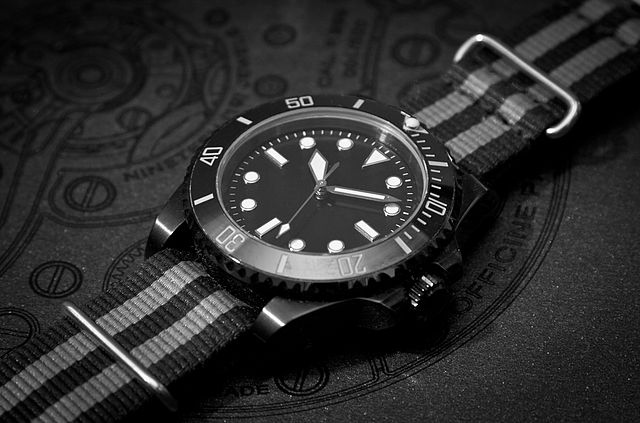I have a confession, which is rather out of line with my “mr-stingy” pen name.
It’s my love of luxury watches. In fact, I’m probably the world’s foremost non-owner expert on luxury watches.
Love them, study all about them — just too stingy to buy one for myself.
If I had a million dollars of spare cash though, I’d probably splash some on a Patek or a JLC. Or at least a Rolex.
What would you buy, if you had a million dollars?
Do you think it would make you happy?
* * * * * * * *
For better or for worse, a lot of people from the middle class and below have a love-hate relationship with money. We eagerly await our bonuses and hope to get that little bit more of a raise every year. And we complain like hell when prices go up.
Yet, a lot of us say things like “More money, more problems”, and the ultimate classic: “I’d rather be happy than rich.” As if it were a mutually exclusive choice between money and happiness.
But it’s not a choice. Utilized the right way, money can be used to buy happiness.
Harvard Business School associate professor and author of the book “Happy Money”, Michael Norton tells us:
If you think money can’t buy happiness, you’re not spending it right.
Here’s how to do it right. From scientifically backed research, and personal experience — mr-stingy’s top suggestions on how you can really buy happiness.
Pay off Your Debts
Your old-school grandparents liked to pay for things with cash. If they’re old-school, your parents like to pay for things with cash too.
Today, we’re a smarter, savvier generation who understand complex financial instruments and the power of leverage.
But there’s a reason why your parents and grandparents did it the old-school way. It’s the enemy of debt. Put simply, if you can’t afford to pay for something, you really shouldn’t be buying it. Debt is a happiness-killer.
Lest I be accused of a holier-than-thou attitude: yes, I’m a prime offender here too. I have a lust for credit cards and a significant home loan to pay for too.
Now we could go into a debate on the pros of cons of debt, good debt vs bad debt, and how a home loan should be an exception because otherwise nobody could afford a home. But as a general rule of thumb: wouldn’t you agree that not owing money at all gives you the most peace of mind?
Thought so.
If you can’t help having some debt (like me), at least make sure it’s under control and it’s of the low-interest variety.
Buy Time
Here’s one incredibly valuable thing that most medium income earners can afford to buy, yet many don’t.
It’s called time. And it’s often underrated in our pursuit of happiness.
Pay other people to do tasks you don’t need to do yourself. And pay for services that will give you more time with your friends and family. Even if it’s expensive.
I’ll give you an example. Assuming that you work five days a week, how valuable is a few hours of uninterrupted time to spend with your family on the weekend?
You can’t put a price on it. But it’s probably more expensive than paying for domestic helpers to help scrub your toilets. And for the skilled gardener to mow your lawn. And for the friendly laundry lady to iron your clothes.
Are those important things to be done? Yes. Could you or your partner do it yourselves? Yes too. But would your time and energy be better spent by teaching your three-year old daughter how to read? Absolutely.
Don’t waste time on doing things that don’t bring any happiness to you. If it’s legal, ethical and practical, why not outsource it?
Because time is more precious than money.
 Everyone could do with a little more time
Everyone could do with a little more time
Buy Experiences, But Only Ones Meaningful to You
If you like reading on the Internet, you’ll likely have heard this advice by now: “Spend on experiences, not material things.” Research has shown that our happiness with material items diminishes quickly, but experiences make us happier over time.
So while you were ecstatic the morning after you bought your BMW M3, one year later it’s just another fuel-guzzling car. On the other hand, you still very fondly remember your trip to Krabi with your buddies five years ago.
Which is all good and fine, except that researchers have found that for some people (about 1/3rd of the population), experiences don’t necessarily bring more happiness than material purchases.
In the words of Ryan Howell, associate professor of psychology at SF State:
I’m a baseball fan. If you tell me, ‘Go spend money on a life experience,’ and I buy tickets to a baseball game, that would be authentic to who I am, and it will probably make me happy.
On the other hand, I’m not a big museum guy. If I bought tickets to an art museum, I would be spending money on a life experience that seems like it would be the right choice, but because it’s not true to my personality, I’m not going to be any happier as a result.
So, it doesn’t matter if all your friends, colleagues and family members think that watching the World Cup finals in the Maracana Stadium will be the greatest moment of their lives. If you’re a fan of Justin Bieber and rather spend that money by going to his concert and buying a t-shirt emblazoned with his face — by all means do it.
Buy experiences that are uniquely you, not what everyone else tells you to.
Spend on Other People
The ultimate way to buy happiness is to spend it on other people.
I highly recommend allocating a portion of your monthly budget for giving. Give to people that you love. Give to people in need. Help charities.
It’s scientifically proven that even giving away five dollars can make you happier.
But what do you do if there’s this item that you just need to get. What if like me, you’re in the 1/3rd for whom most experiences aren’t much better than material stuff. What if you desperately want the feelings that come with holding that item in your hands, knowing that it’s finally yours?
Here, I’ve figured it out. The best way to get that item, while maximizing happiness:
Spend some time researching the item you want to purchase. Read how Internet bloggers gush over it. See those gorgeous high-definition pictures and go look at it in stores.
Touch it, smell it, feel it. Go home and fantasize about it even more. Delaying gratification makes the pleasure even greater.
Come back and finally get the adrenaline rush of paying for it (on a zero-interest installment plan, high cashback credit card, of course). Feel the pride and gratefulness of being able to afford such wonderful things in life. Celebrate over dinner and record the moment forever via the obligatory picture.
And then give it away to someone you love as a present.
* * * * * * * *
That’s what I did, when I bought my first Rolex a year ago.
And I’m still happy about it today.
References and Further Reading: Psychology Today, Mind Body Green, CNN, LA Times, Mr Money Mustache
Pic Credit: “Boating” by Gagilas, “Rolex 5513“ by Gue Sie




You can definitely use your money to buy things and experiences that can make you happy. But if you don’t have the money, it doesn’t mean you can’t be happy. Happiness is a choice. You can always be happy with or without it. Just be contented and you will be happy.
Thanks so much. Happiness is indeed a choice.
Okay, I’ll start saving for my happiness. I hope it’s not too costly.
It’ll be worth it. 😉
Hi, Aaron. I’m Sandra from Bandung.
Found your website after searching for ‘how to use myRapid card’ and read your experiences as a commuter couple years ago. Long story short, I’ve read several posts and share one of them (“Is RM 3,500 Enough…”) to my office’s FB page.
Done with the obligatory introduction, here’s my short question: to whom did you give the Rolex? *curious and curious
Thanks and love your writing!
Hey Sandra,
Thanks for writing in and your support. I gave it to my dad of course. 😉
Good to see my dad enjoy wearing the Tissot and my mom using the Coach handbag i got them. Happiness everytime I see them using gifts from me 🙂
Good on you for being such a good son. Your parents will be so happy and proud of you too!